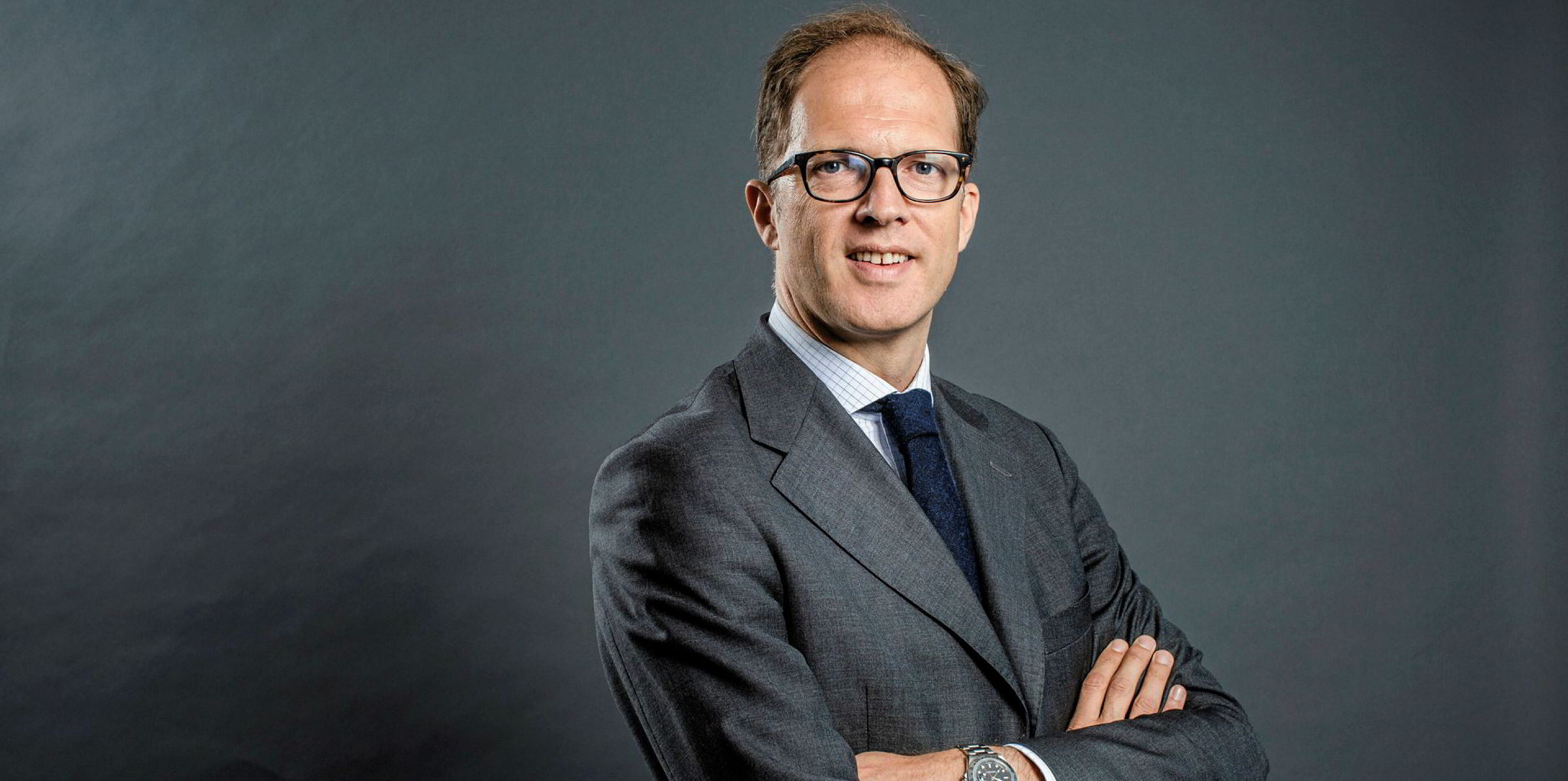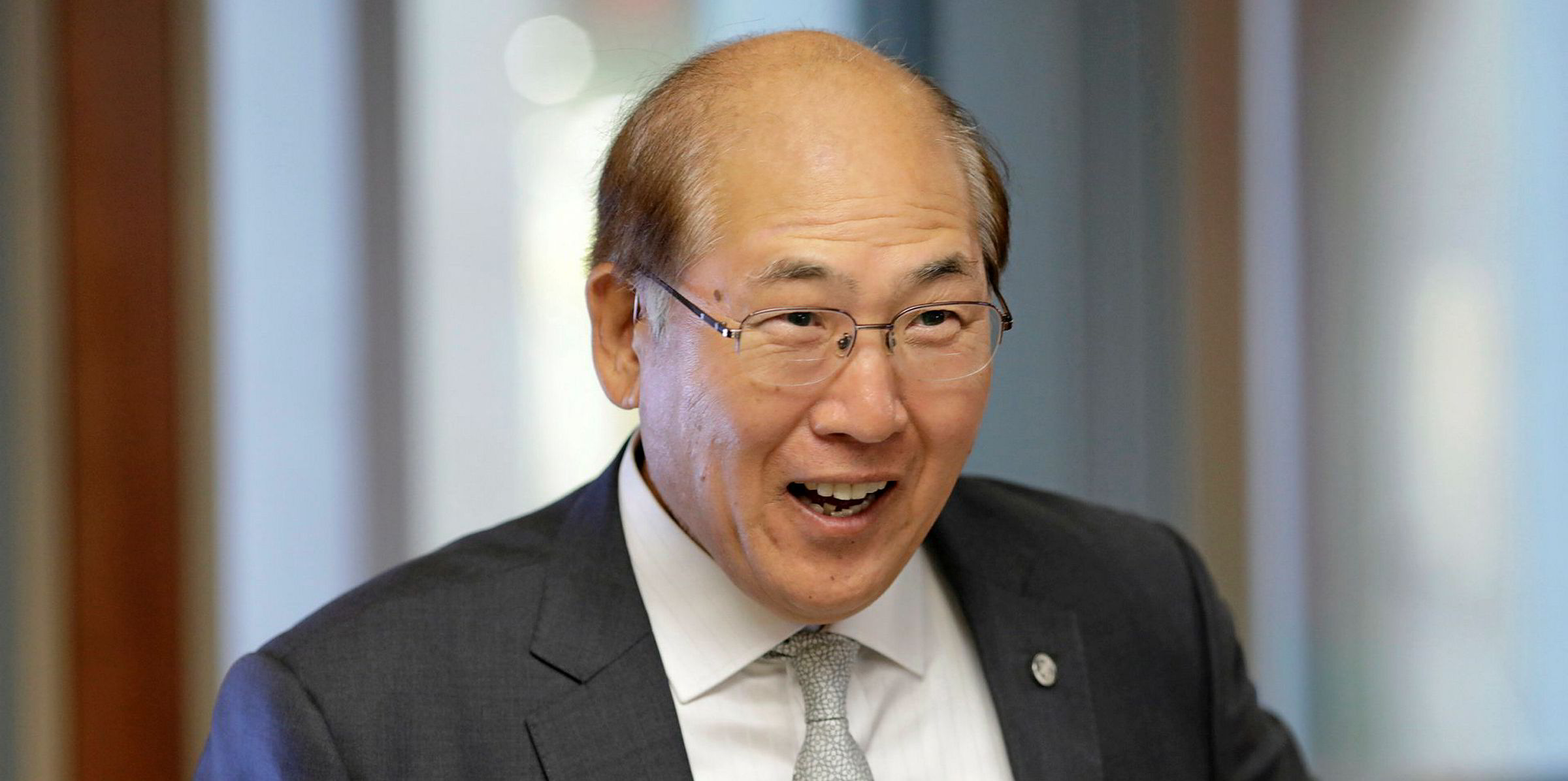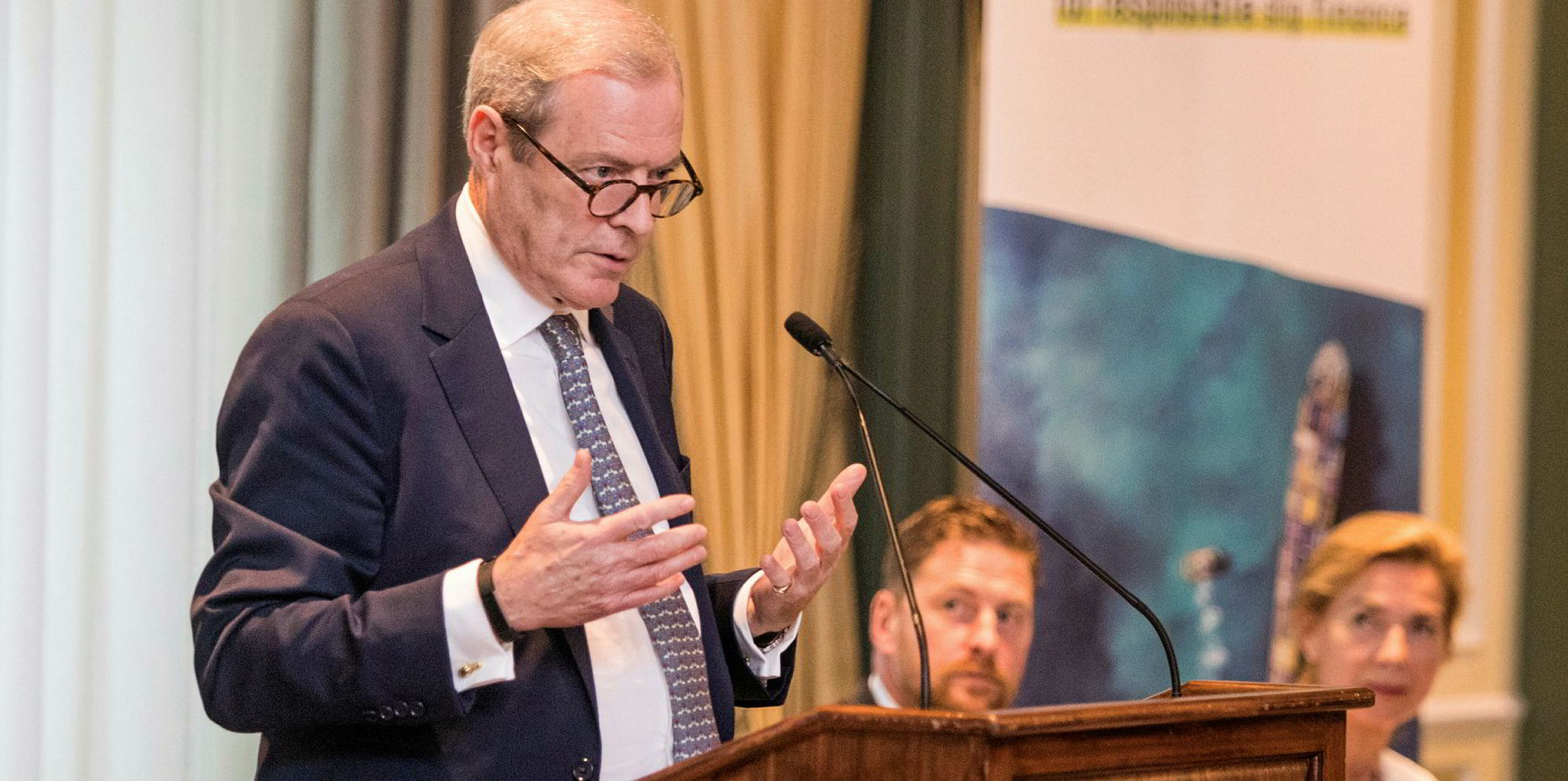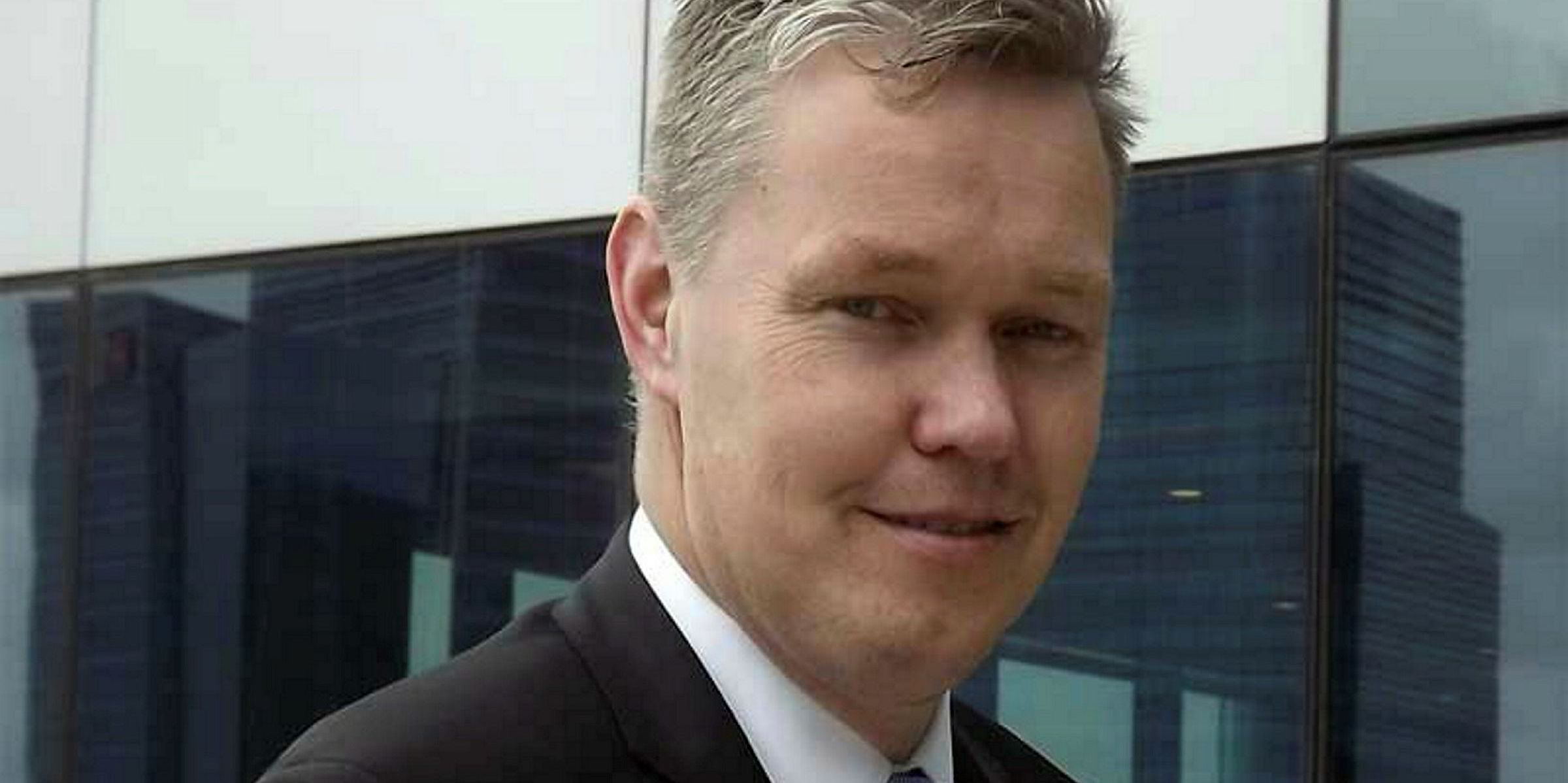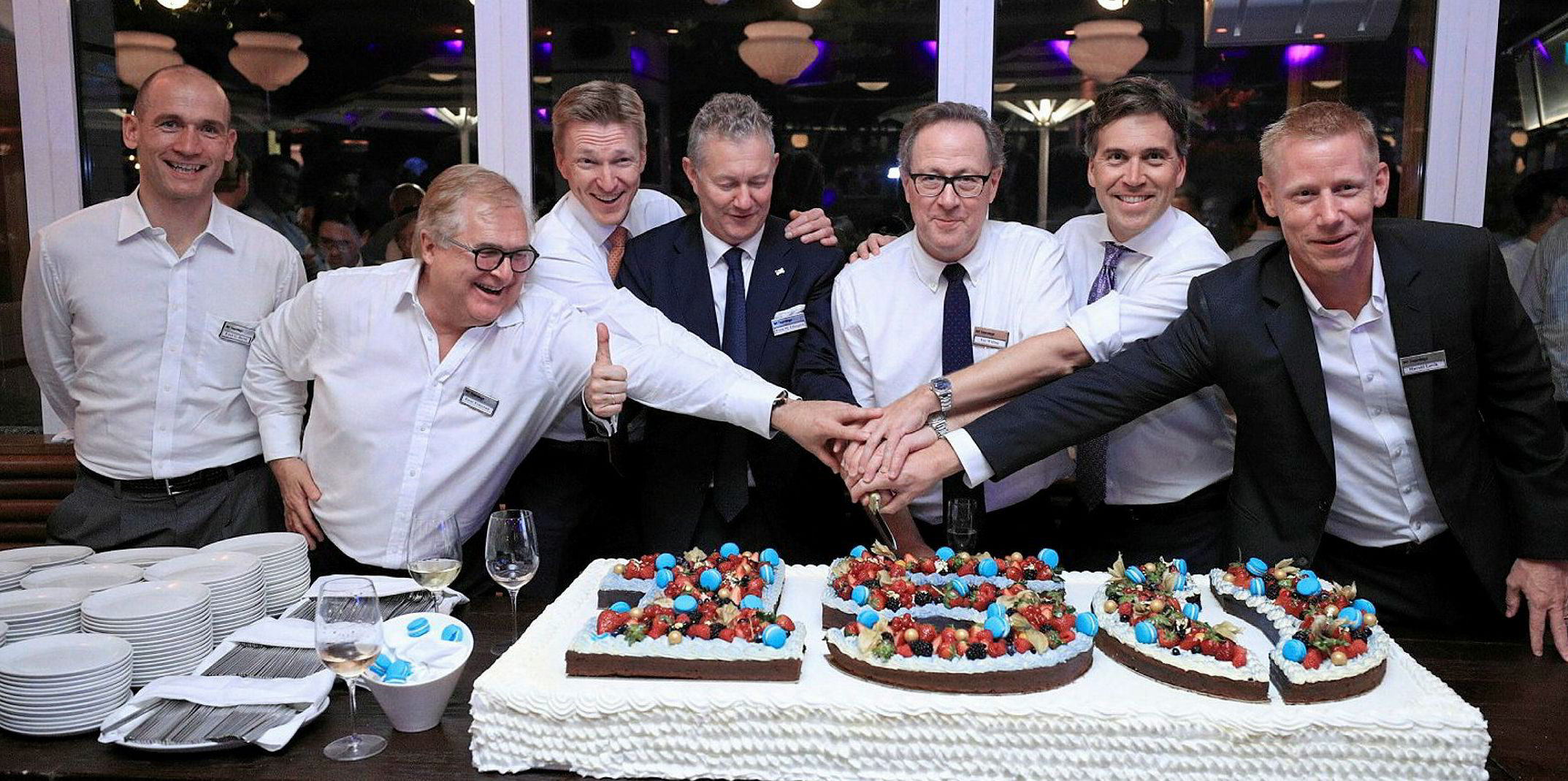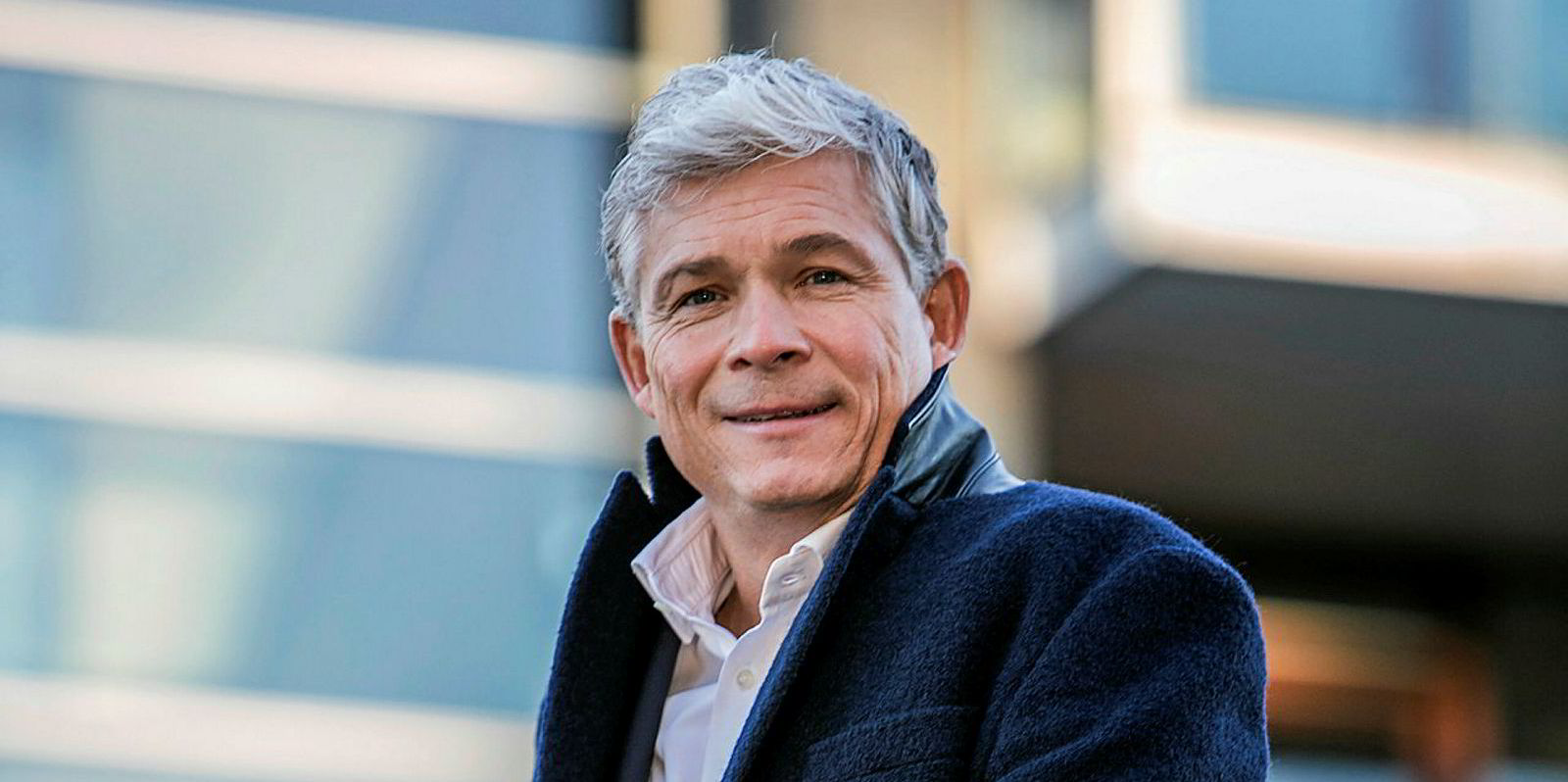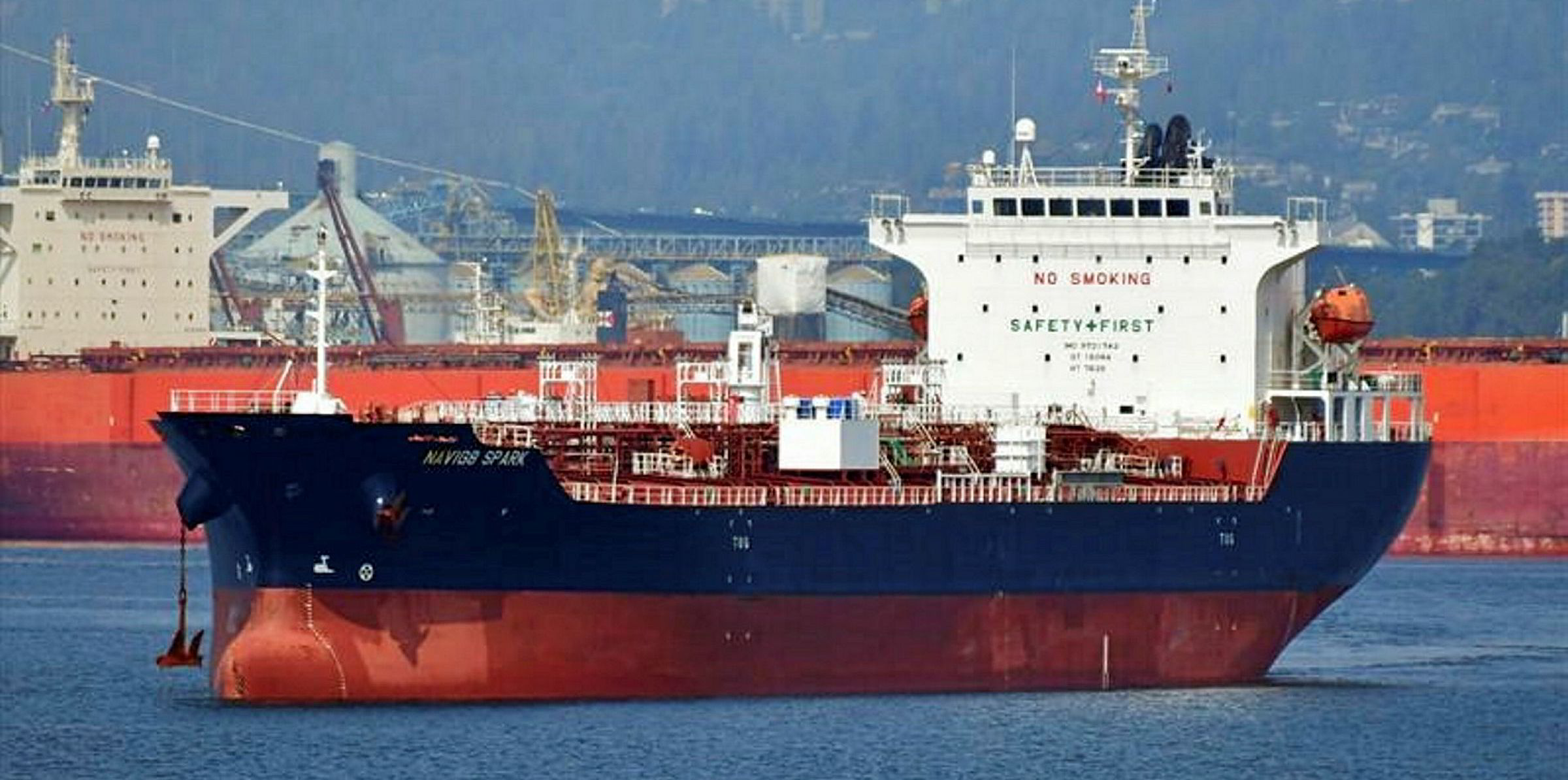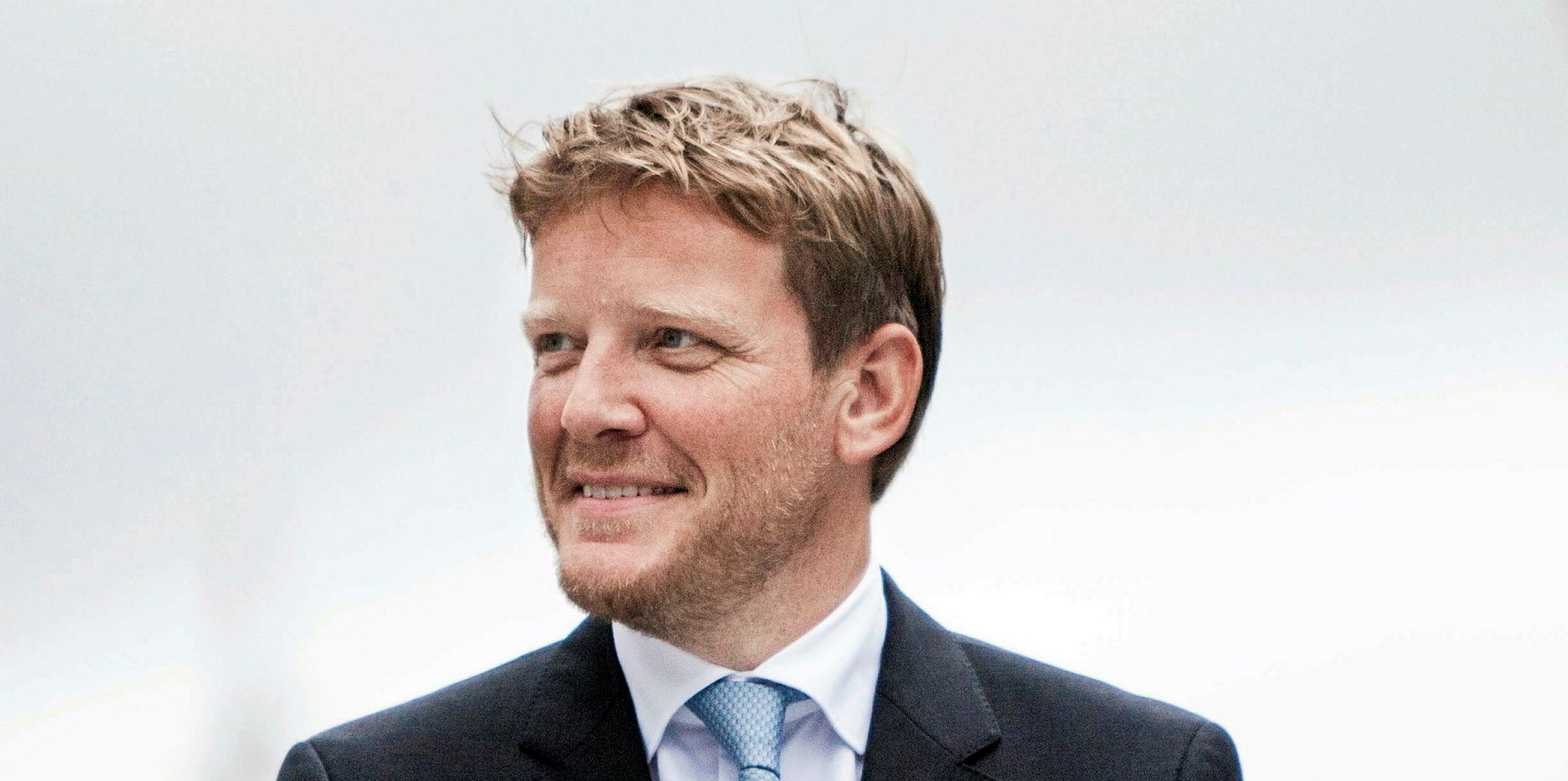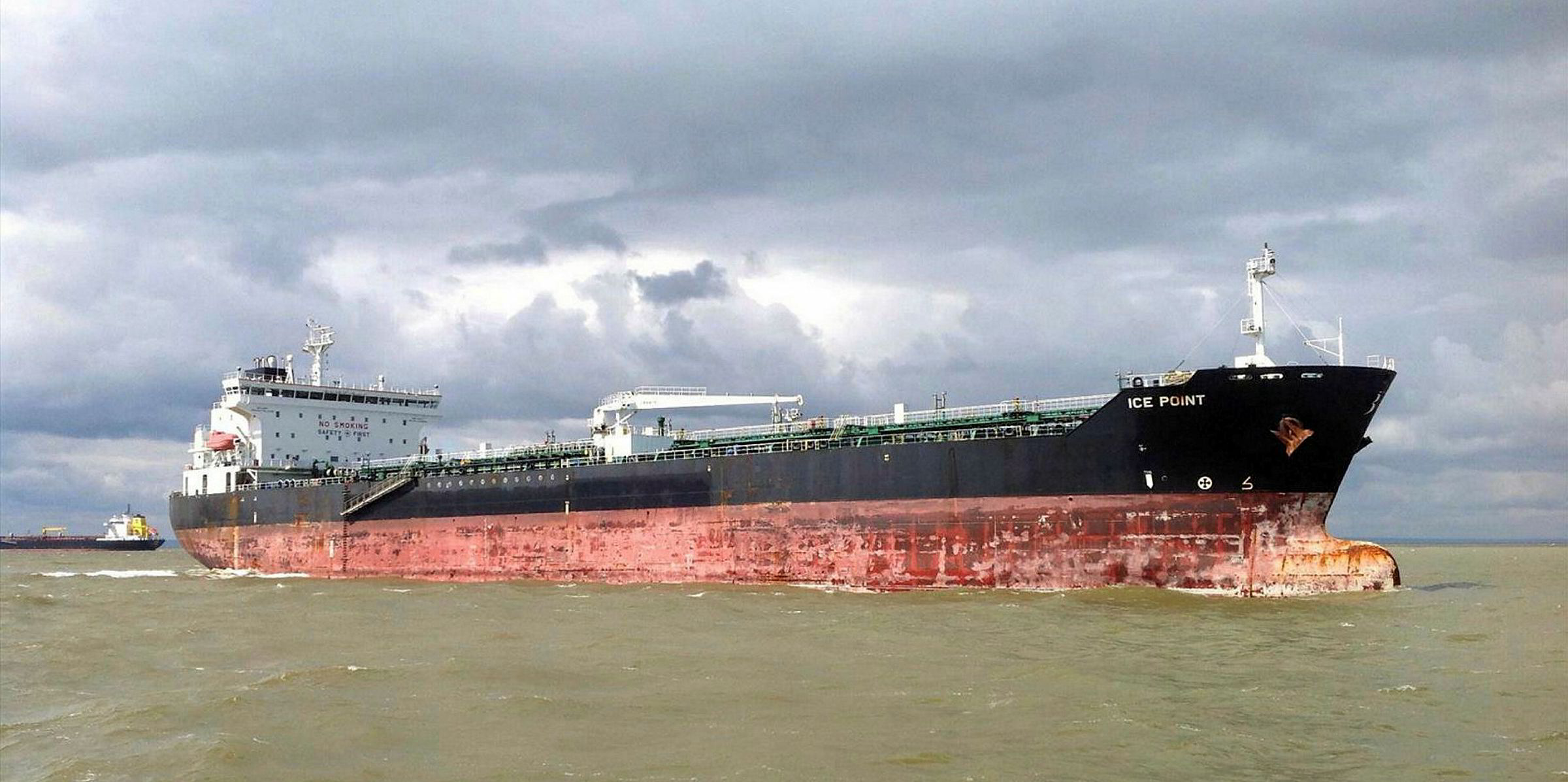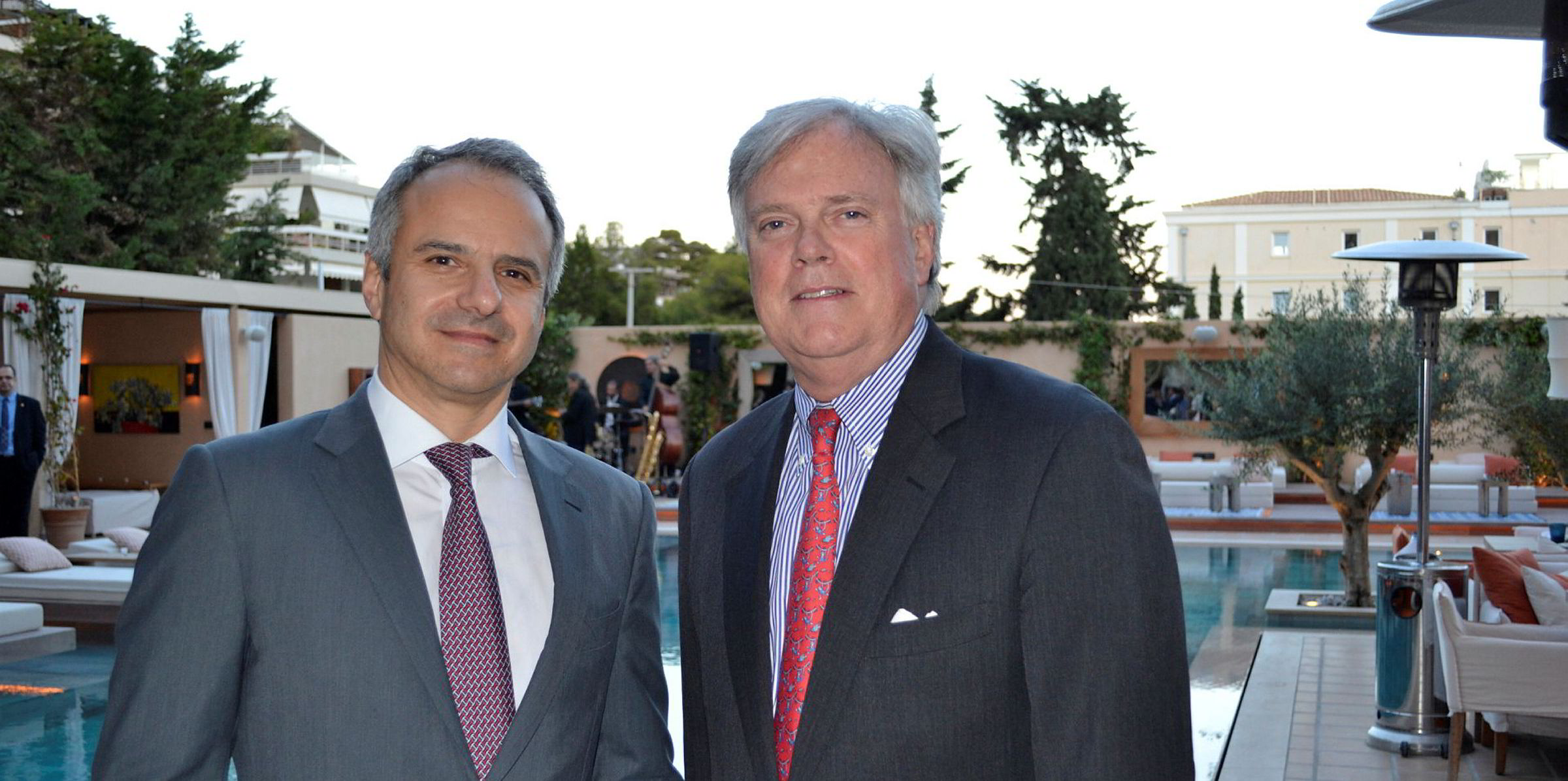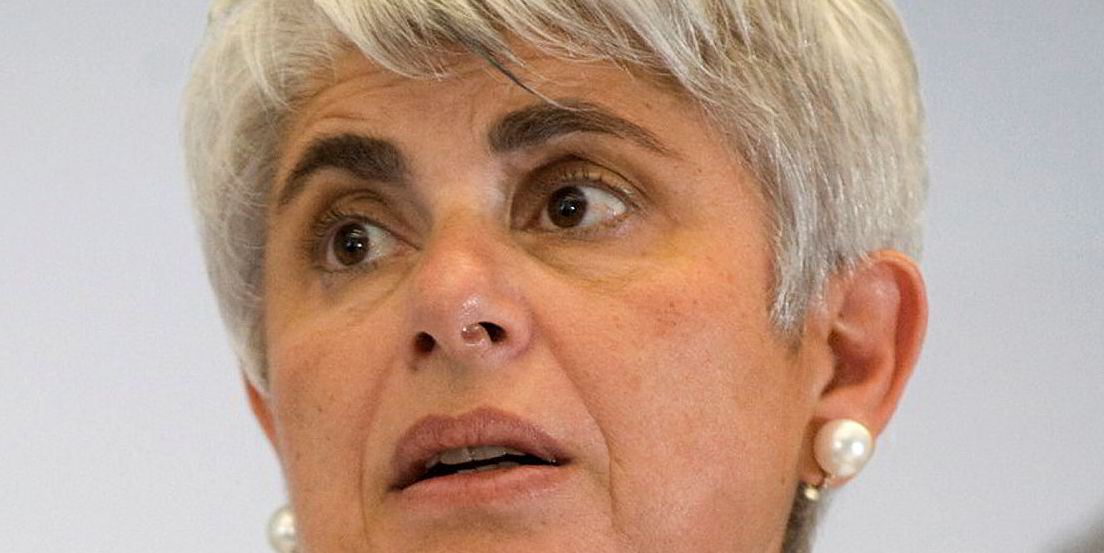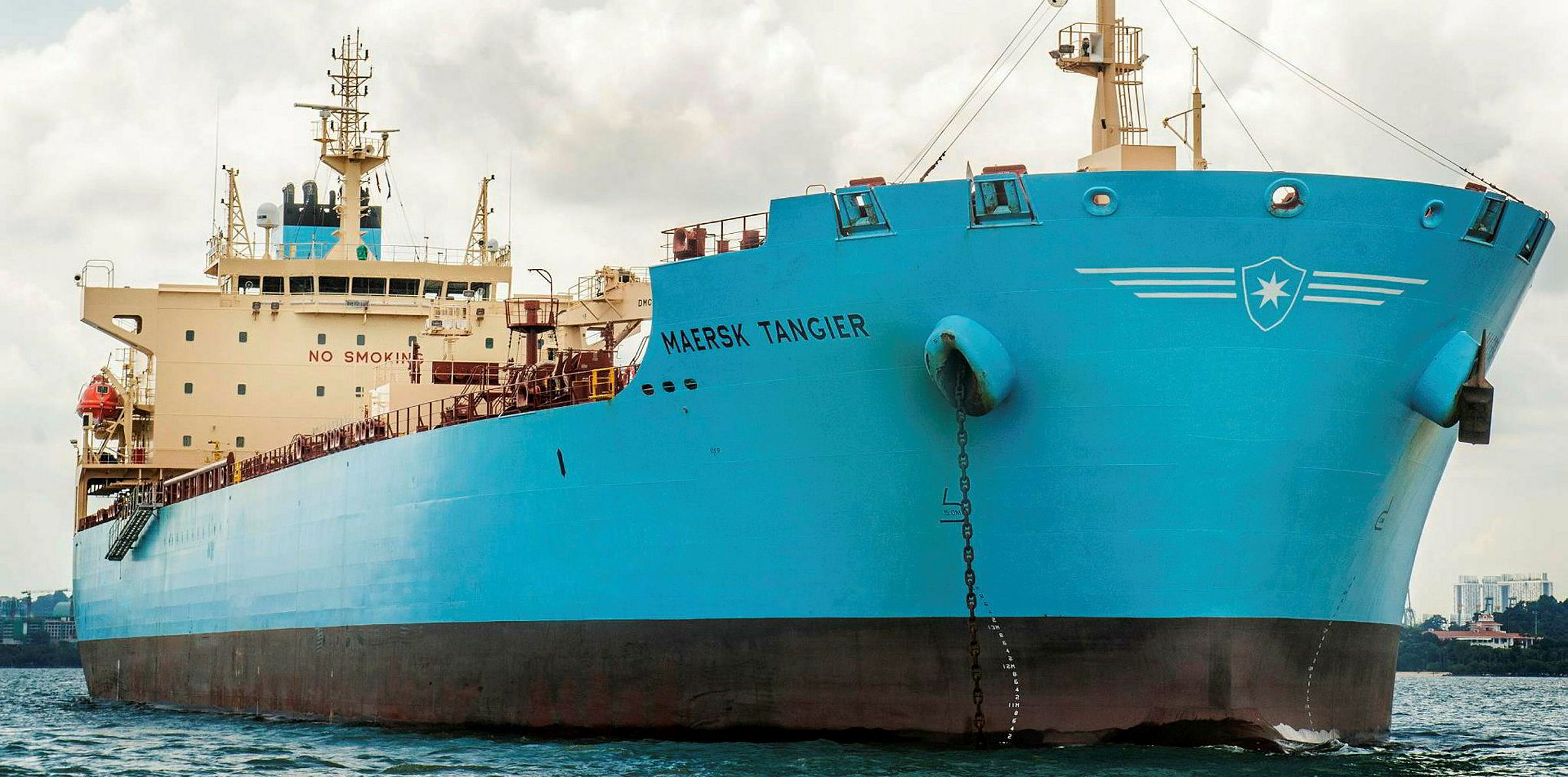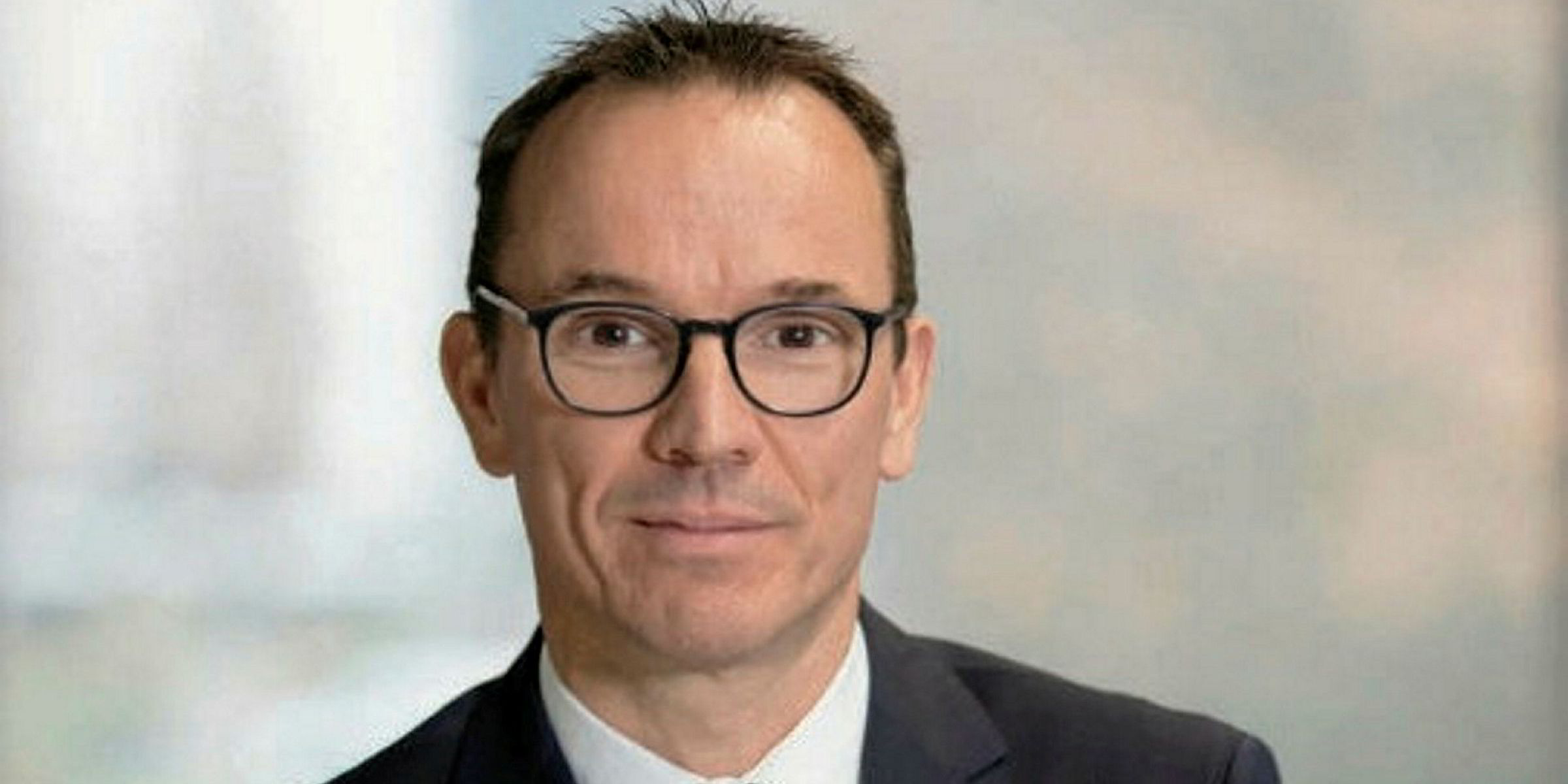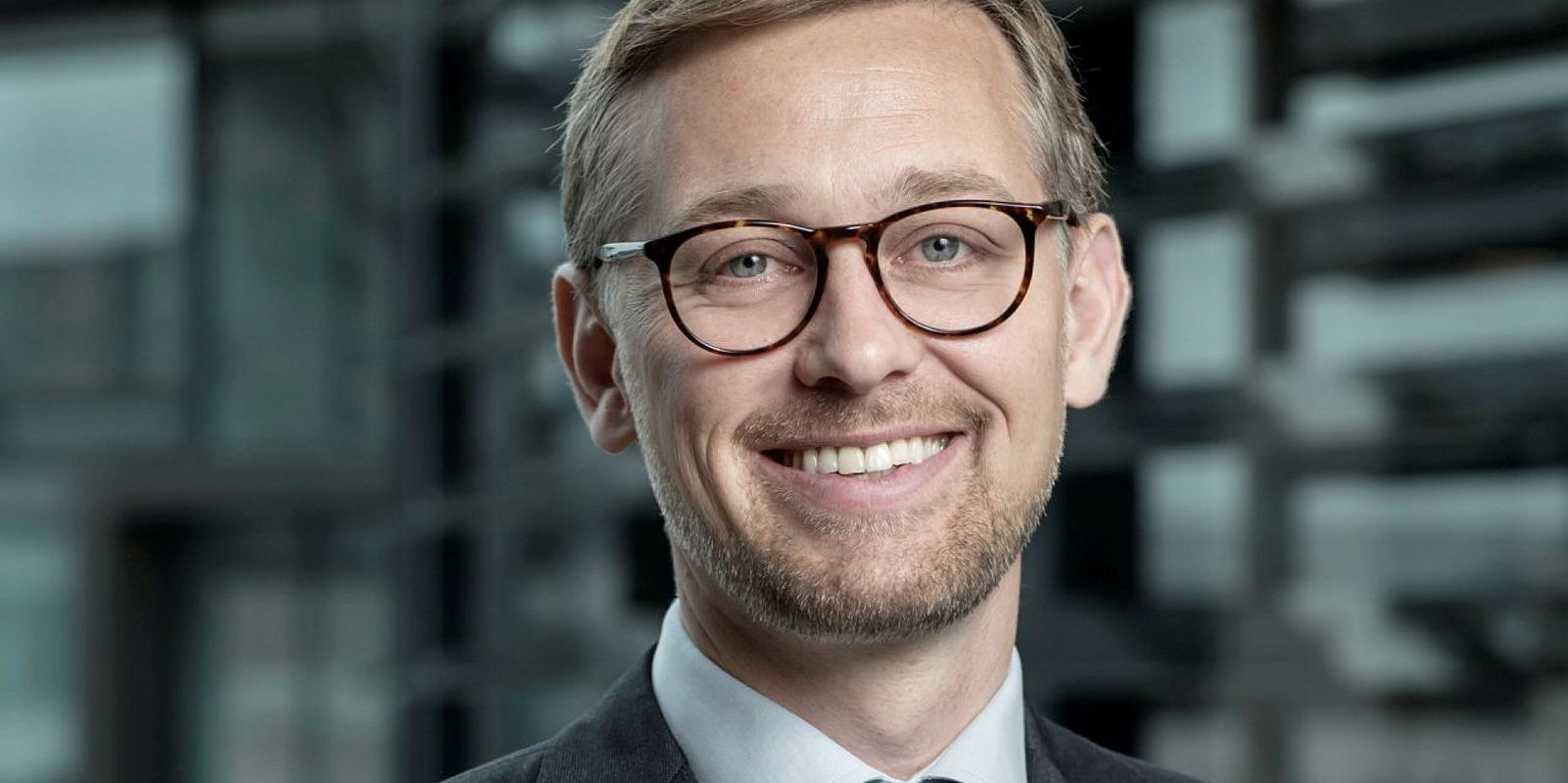HUGO DE STOOP
Chief executive, Euronav
The large crude tanker sector will face numerous and multiple challenges over the next decade. Firstly — and most critically — will be meeting the stringent emissions targets set by the IMO. The winners will be those meeting this challenge in a sustainable manner.
Euronav aims to comply with the proposed 40% reduction [by 2030] via a series of in-house efficiency initiatives, continuous rejuvenation of its fleet and looking out for new technologies that could abate our emissions.
Opportunities exist over the next decade in abundance, however. The provision of capital is key for a capital-intensive sector such as crude tanker shipping.
Euronav is a core supporter of the Poseidon Principles — the first coordinated attempt among shipping banks to provide minimum environmental, social and governance thresholds to the $400bn of finance it supplies to shipping.
With increasing regulatory demand and capital pressure, the crude tanker sector has an opportunity to meaningfully consolidate. A more consolidated sector will be more attractive for long-term equity investors to participate in and ultimately drive more rational behaviour in the marketplace.
Euronav has demonstrated a consolidation track record via a 300% increase in its fleet since 2014, and commercial consolidation with the Tankers International pool. Expansion via both approaches remains open over the next decade.
A third opportunity will come from technology, not only in applying best-in-class technological applications to our day-to-day business, but more critically in the propulsion systems for our tankers.
For crude tanker shipping to meet our emissions objectives over the next 10 years, it will require a leap forward in fuel propulsion systems. Euronav stands ready to assess and invest in such systems as they become feasible.
The large crude tanker sector will be an exciting place to be over the next decade, with a flexible, yet focused management approach required to succeed.
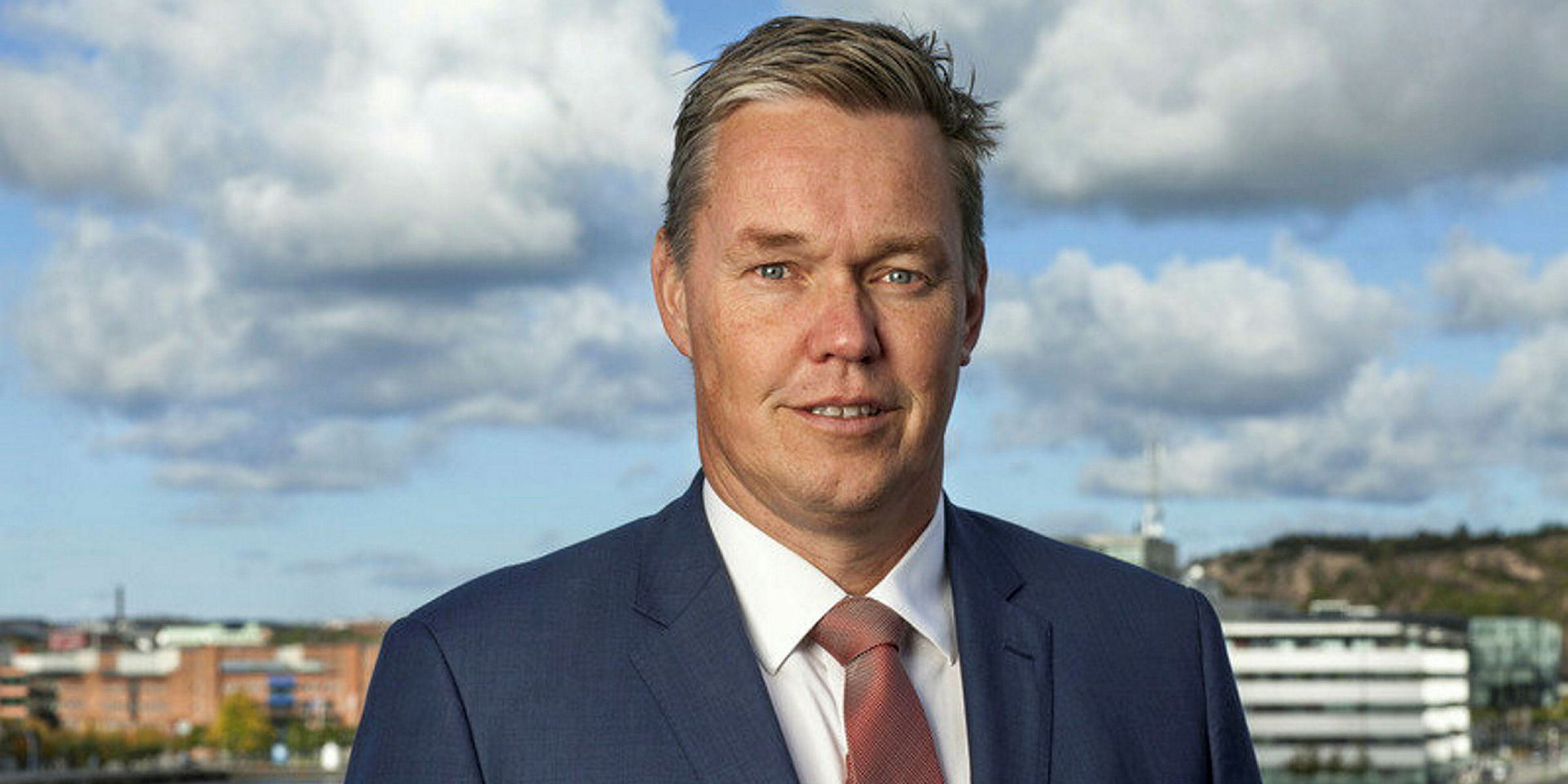
ERIK HANELL
Chief executive, Stena Bulk
As most others probably say, the challenge will come with the implementation of the new fuel regulations. During the first half of 2020, that will most likely cause logistical challenges in respect of supply of the right fuel and, with tight availability, a price spread that will be very volatile. This will likely stabilise in the second half of 2020, but that remains to be seen.
Most owners “fear” the technological development in the transportation industry.
Another factor that will play in is the political situation that is changing from one day to another. This will affect the growth in the world more than usual in the next 12 to 18 months. With the trade wars, elections in different parts of the world and some areas of the world that have instability, logistics and its development will be uncertain, more than in a long time. Even more uncertain is the outcome of the development and the elections that will be made.
What we as owners hope for is that the trend that we see right now, with limited interest in ordering, will continue. As we understand it, most owners “fear” the technological development in the transportation industry.
In companies that put efforts into transformation, sustainability and R&D [research and development] of ways to make logistics more efficient in all aspects, I think there will be companies that will sustain and be at the forefront when we are reaching a somewhat clearer view of how this will develop.
This is not only hardware we are talking about but also software, ie, peoples' mindset. This is of course not only for 2020, but through the years to come. But I believe that you have to be on the ball at any given time in the years to come, not to drop it or be run over.
As the last point, I hope that we can manage to change the view of age limitations of vessels and that is something that will be more recognised by users of the ships we are running — will we see a change? The reasons to change should be there from many aspects, but it will of course need a big change in the industry. Quality owners have a lot to gain, while less serious players, or “tourists” that usually shows up when the market is taking off, can make the change more distant.

ANITA GAJADHAR
Managing director, Proman Shipping
Increasing environmental regulations in the maritime industry will present both the biggest challenges and opportunities in the next decade.
For vessel owners, the immediate impact will be from the stricter environmental measures, such as the 2020 sulphur cap and the aim to reduce the carbon intensity by 40% before 2030.
As vessels tend to have a minimum 20-year lifespan, decisions to meet the long-term target to cut greenhouse gas (GHG) emissions by 50% in 2050 will also start to impact newbuilding plans by the end of the decade.
In order to ensure sustainability, owners will need to research and implement new initiatives to safeguard the environment and industry.
Whether it is adopting new operational measures, such as slow steaming, to reduce carbon intensity, or investing in dual-fuel engines and adopting alternative fuels, such as methanol, to meet the GHG emissions targets, the shipping market will have to evolve in the upcoming decade.
The required changes to meet these targets of course come at a cost; owners and charterers will therefore need to focus on improving operational efficiencies to maintain profitability. Alternative fuels will be the best option to achieve these goals.
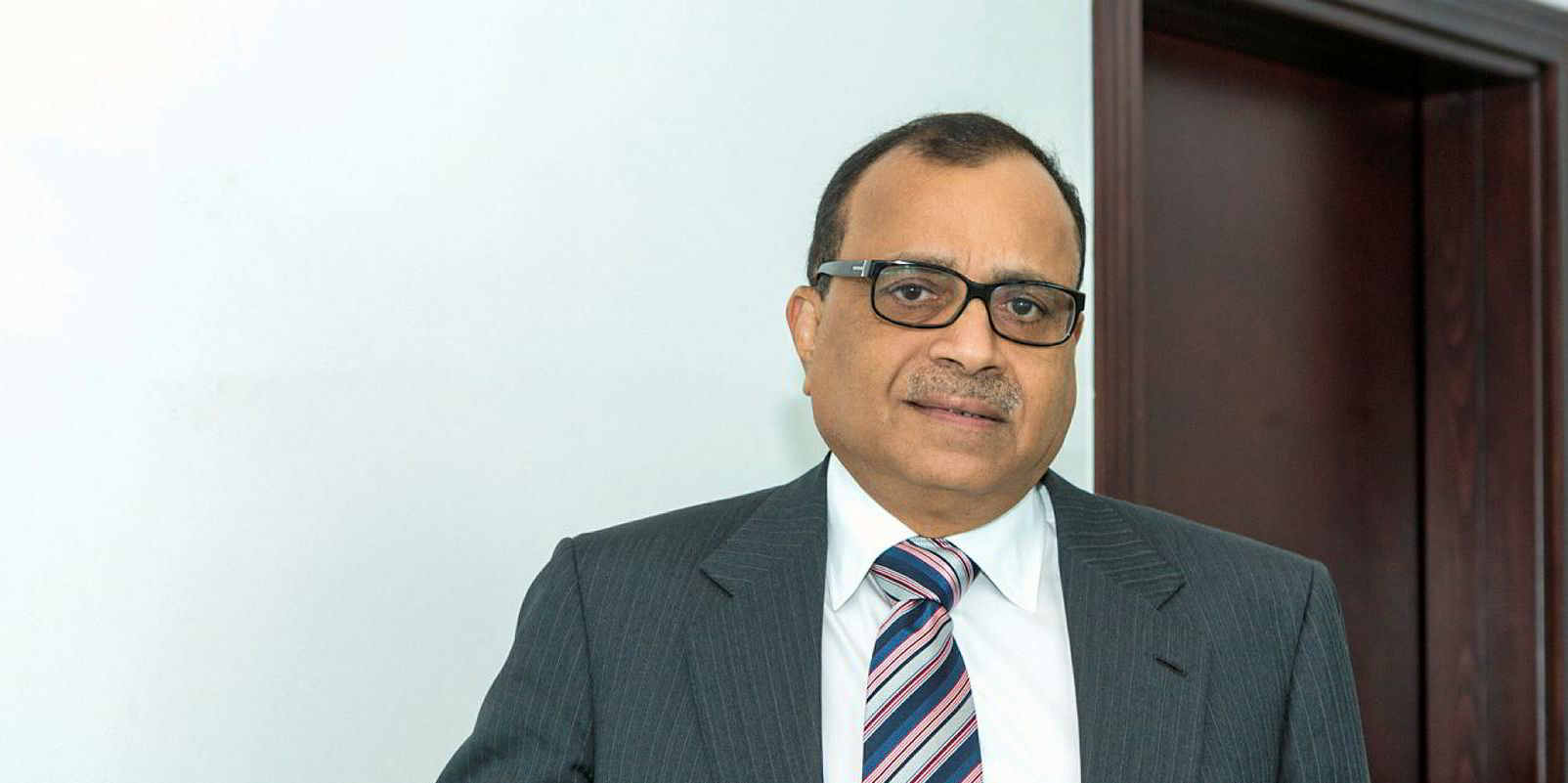
EUGENE MAYNE
Founder and chief executive, Tristar Group
With the introduction of the 0.5% sulphur cap this month, we expect there to be some turbulence in shipping rates due to the availability of low-sulphur fuel oil (LSFO).
Several owners have different viewpoints on scrubbers and therefore we have not seen the expected rush for scrubber fittings, which, combined with the availability of LSFO, will probably continue to be the biggest challenge for the industry in the early days of 2020.
The trade war between the US and China, if unresolved, will continue to remain a challenge to global shipping. However, with more than 80% of our fleet on long-term time charters, we are not over exposed either to the cyclical nature of the shipping industry or to the roll out of the new IMO fuel emissions standards.
We look forward to taking delivery of our six 25,000-dwt IMO2 chemical carrier newbuildings being built at Hyundai Mipo Dockyard from June, and we are also currently evaluating our entry in the LNG shipping market in the next 12 months.
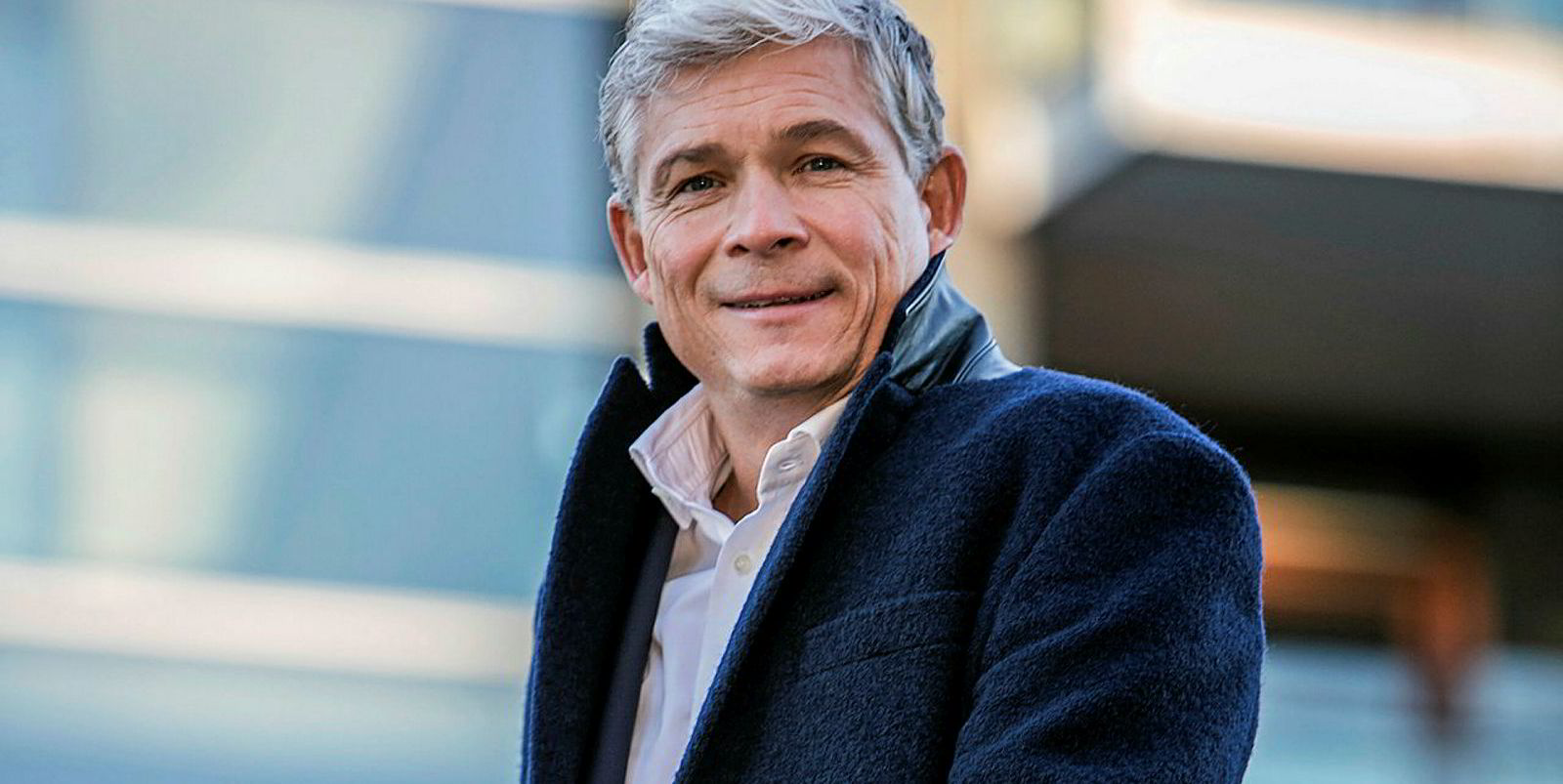
MIKAEL SKOV
Chief executive, Hafnia
One of the key challenges Hafnia sees on the horizon is the need for greater industry collaboration to tackle decarbonisation and meet environmental and emissions targets.
Increased environmental, social and governance demands and regulatory requirements are raising barriers to entry in our segment.
“Next generation” newbuildings with a lifetime crossing 2050 must also be designed to include the ability to burn renewable alternative fuels, or even be equipped with radical zero emission propulsion engines.
Shipping companies must be adaptable — embracing new business models which rely heavily on new technology, digitalisation and innovation, and encouraging a work culture where employees relish change.
Finally, access to capital and its associated costs remains a challenge for shipping and will continue to be so in the near future. These challenges, of course, are also opportunities for those who are prepared.
We expect further consolidation in our sector and it is Hafnia’s ambition to be driving this. We have put in place a strong focus on digitalisation, and have rallied our employees behind the adoption of innovative and sustainable business models.
This way, as a company and as an industry, we will be able to attract young talents to choose shipping as their profession of choice.
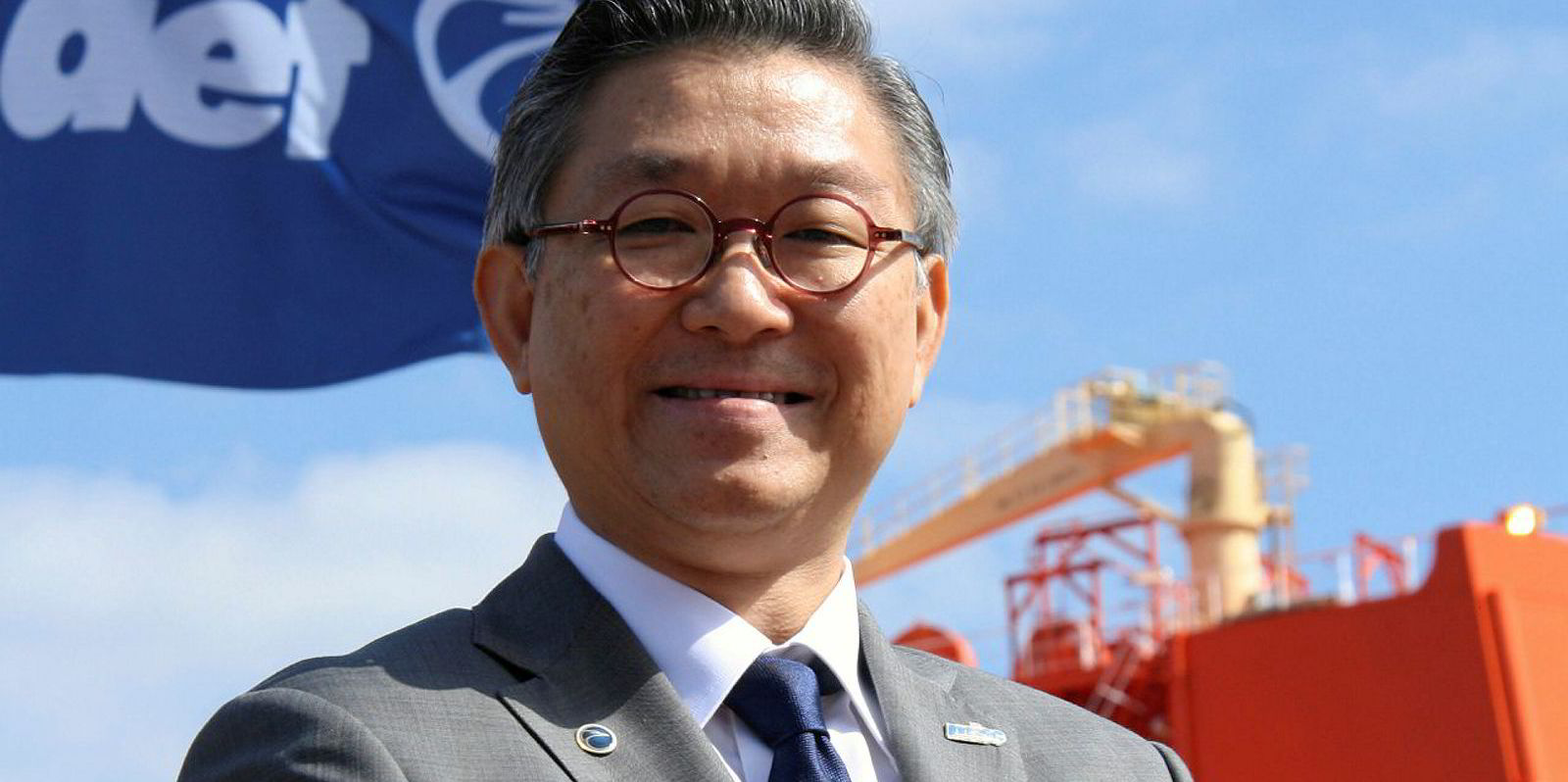
YEE YANG CHIEN
President and group chief executive, MISC Berhad
The markets are going to be very active. It is going to be hot in some ways — not by the natural order of economic cycle in the industry, but by intervening policies made by different countries.
You have got all of these policies flying left, right and centre saying you cannot do this, you cannot do that.
We have already seen that US sanctions against Chinese shipowners and the banning of vessels moving crude from certain places has an impact. It restricted the supply side of ships and caused a spike in VLCC rates.
We already know the upcoming environmental legislation and can assess how that will impact us.
IMO 2020, ballast water treatment — that is manageable. The question is what will future geopolitical problems, policies and trade sanctions do to the global economy?
Will there be a softening of the global economy? If this happens, what will it do to liquidity in the market? Are there going to be changes in trade routes for shipping? That is the unknown.
It is all going to feed off each other. Whether you agree on how it gets to that point, it is going to be a very hot and active market.
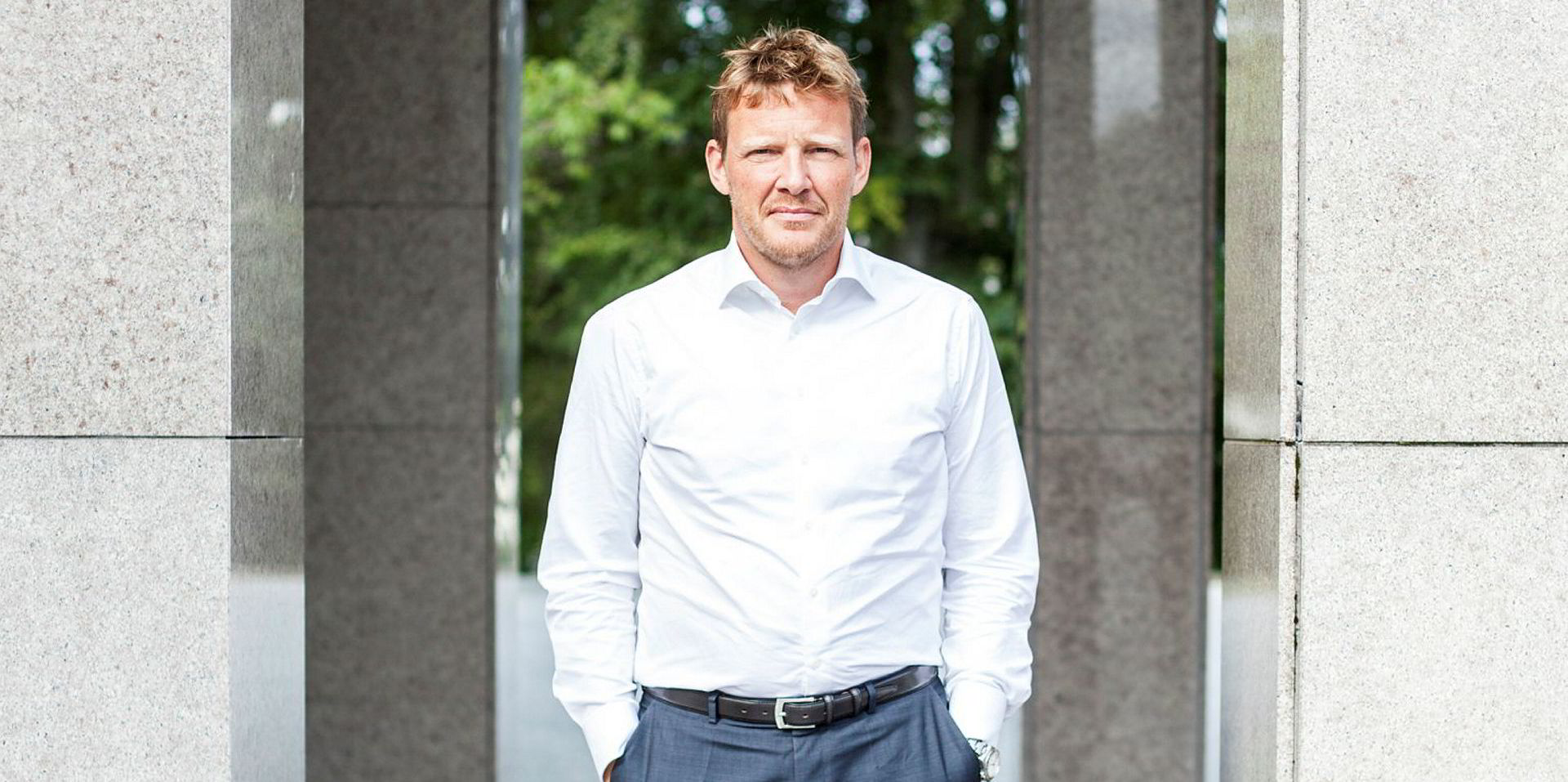
KRISTIAN MORCH
Chief executive, Odfjell
The chemical tanker market enters this decade with the opposite outlook as the start of the decade we are leaving behind: a low orderbook leading to limited near-term fleet growth and structural drivers supporting demand. We live in a world dependent on chemicals, and what we transport is essential in everyday life.
Demand for chemicals is estimated to grow by 30% in the next decade by the International Energy Agency, and we expect to see an acceleration of the structural changes in the chemical industry that will affect chemical tankers in the next 10 years. The first wave of new export-orientated plants from the US and Middle East is ramping up and should support stronger markets in the next few years.
The next wave of investments is not a question of if, but when — and, when it occurs, this should continue to reshape the chemical tanker trade, with exports to continue centralising in the US and Middle East and more than 60% of demand being in Asia, supporting longer hauls for the chemical tanker fleet. Therefore, the Asia region is a key driver to support continued strong chemical tanker demand going forward.
The next 10 years is also the decade where we will see the effect of the chemical industry to account for more than one-third of global oil demand growth. We will continue to see higher refinery integration and we will also see the first crude-to-chemical production unit to start operations in 2025. This will bypass the refinery process in order to produce chemicals, which, we believe, should be part of supporting increased trade of liquid chemicals also in the latter half of the decade.
With demand prospects looking healthy, the strength of our markets in the next decade should boil down to owner’s capital discipline and fleet growth. The centre of attention in that respect is the industry’s need to become compliant on CO2 and NOx emissions. We believe this uncertainty on propulsion systems could keep a lid on orders in the near term and trigger consolidation driven by a need for larger entities to meet future regulatory, R&D and customer demands."
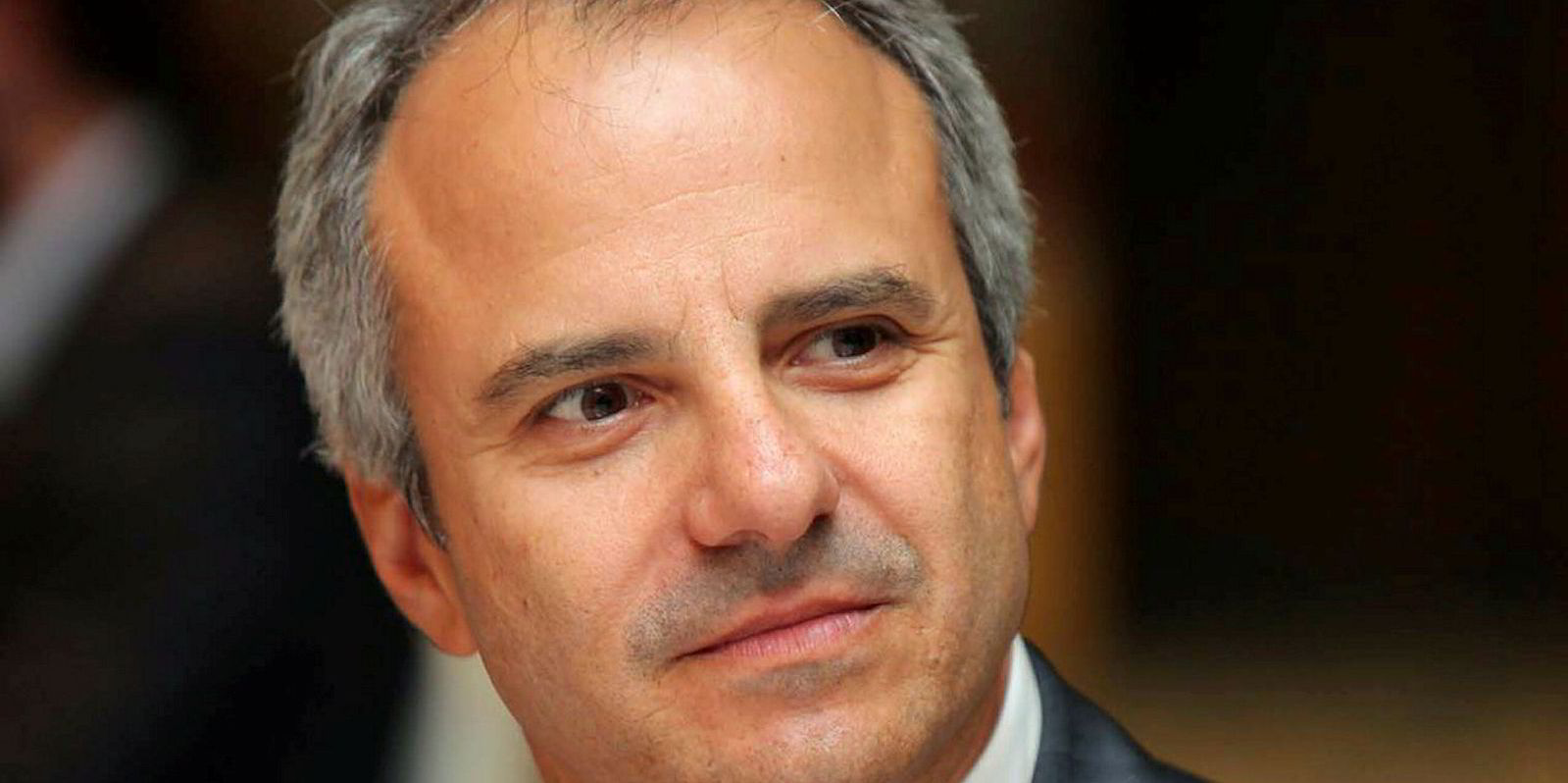
EDDIE VALENTIS
Chief executive and chairman, Pyxis Tankers
The biggest short-term challenge — and opportunity — is managing the various uncertainties created by IMO 2020.
We have chosen not to install scrubbers due to a number of operating, strategic and financial considerations. The sourcing of compliant low-sulphur fuel oil (LSFO) at reasonable prices with no compromise to vessel operating performance is a developing story industry-wide.
We focus on eco-modified and eco-efficient MR product tankers, which have lower consumption than older, standard vessels.
The entire shipping industry continues to face a scarcity of cost-effective capital, whether for growth or liquidity purposes.
Currently, a majority of our tankers are on staggered time charters, so the charterer is responsible for procuring and paying for the fuel. We are hopeful that the current attractive charter environment will improve further and eco-premiums, which currently average $2,000 per day, will continue for a sustainable period.
Our segment should benefit in 2020 from incremental demand for the distribution of new blended fuels worldwide and new, expanded trade routes. The return of arbitrage opportunities as well as the possible implementation of slow steaming across the industry would be very positive developments, which will lead the market to the much-needed sustainable recovery.
Moreover, near-term supply/demand fundamentals look very positive for the MR segment. Longer-term, environmental regulations will only increase. Obviously, the key focus will continue to be the reduction of the carbon footprint.
This will affect all aspects of shipping — vessel design, operations, compliance, finance and management. Unfortunately, the cost structure for shipping will rise with more regulations. As a conscientious owner and operator, we will continue to take these environmental obligations very seriously and deploy the necessary resources.
The entire shipping industry continues to face a scarcity of cost-effective capital, whether for growth or liquidity purposes. Except for brief periods in the past, poor and volatile returns by numerous shipping companies have led to negative sentiment by many equity investors, especially long-only institutions and private equity firms. Traditional bank financing has declined substantially over the past number of years, a trend which is predicted to continue in the near to medium term.
We recognise that investing in US-listed shipping stocks has evolved, attracting more retail investors, including day traders, and momentum players such as hedge funds. We welcome their interest in our company and seek to provide attractive returns to our shareholders. When opportunities arise to quickly raise equity capital, we try to respond accordingly — but only at a fair price. In the meantime, we continue a disciplined cost structure and explore various alternatives up and down the capital structure.
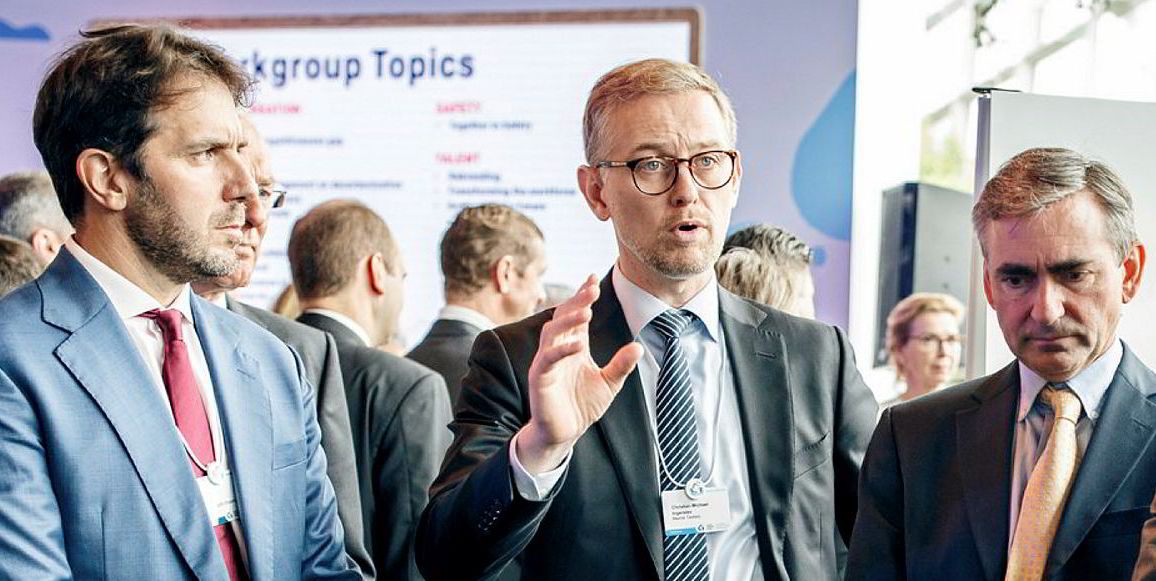
CHRISTIAN M INGERSLEV
Chief executive, Maersk Tankers
The years ahead could well prove to be a landmark decade for the industry as the complex challenges posed by climate change and new regulatory requirements urge us to adopt more innovative and sustainable practices.
Cultivating greater cooperation within the industry seems the enlightened choice: more collaboration enables us to generate scale, which increases efficiency and encourages investment in and the use of new technology in a commercially viable manner.
At Maersk Tankers, through collaboration with other vessel owners, we have increased the scale of our operation to more than 200 vessels. And, in the future, further growth is the best option.
Our partnerships are forged by a common vision to employ digital solutions to enhance vessel efficiency while lowering CO2 emissions, benefiting both profitability and sustainability.
We have invested significantly and strategically to make Maersk Tankers a digital pioneer within the industry. We are confident that artificial intelligence, algorithms and robotics will be instrumental in solving the industry challenges in the years to come.
As we have increased the size of the fleet, we have strengthened our data bank. Thus equipped, our in-house digital team has been able to develop new digital solutions. Commercially, we have developed algorithm-based trading tools to support our charterers in positioning vessels. Operationally, we have used data to boost efficiency and lower CO2 emissions.
While our new digital tools focus on driving performance and results for our pool partners, we believe that our efforts to reduce CO2 emissions must have a broader industry focus.
As the industry is expected to be met with a fair — and high — tax on emissions in the next decade, it will be up to all industry players to step forward, offering ideas, innovation and partnership.
This has led Maersk Tankers to offer our latest digital solution — SimBunker — to external customers from the broader shipping industry, who will play a part in the testing process. Furthermore, we have launched a partnership with Mitsui and Cargill to use our technical know-how to offer energy-efficiency solutions.
We truly believe that the coming years will be exciting for the shipping industry. The world is calling for us to act, and we stand prepared to prove our value as an innovative and sustainable facilitator of global trade.
This is part of a multi-sector series on shipping industry outlook for the decade ahead. Read the full report in this week's print edition.
